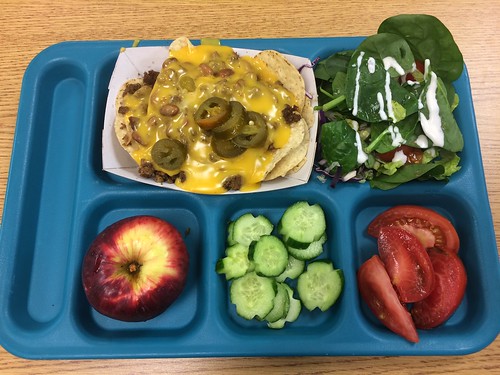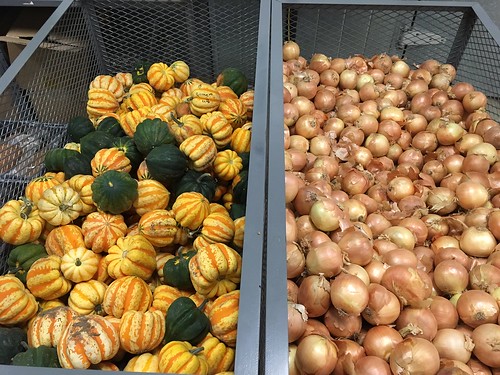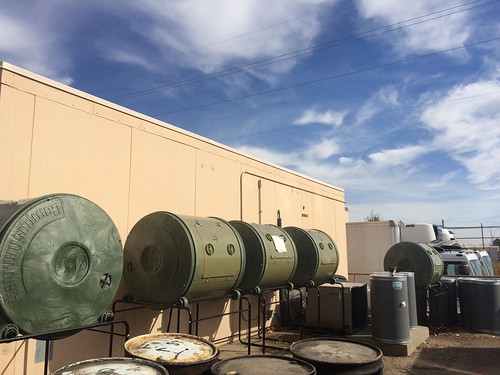
A bin of acorn squash sits on a pallet at the Weld County School District 6 central kitchen, right next to a bin of yellow onions and a 1,000 pound tote of russet potatoes – all locally-grown. A walk through the facility is enough to convince anyone that Weld County School District 6 is committed to scratch-cooked, locally-grown food for its 22,000 students at 35 schools. In this rural Colorado school district, where over 40 languages are spoken at home and 66 percent of students are eligible for free or reduced price meals, fresh, tasty food is the norm – even down to the green chili, a southwestern favorite roasted in-house, using three varieties of local peppers.
About a quarter of the central kitchen is dedicated to processing fresh fruits and vegetables. Mushrooms are sliced, carrots are shredded and onions are diced. With funding from a USDA Farm to School Grant in 2013, this food hub portion of the kitchen was furnished with tables, wash stations and equipment to process local food for Weld County’s own meals and for other districts in the area.

Natalie Leffler is the Food Hub Manager at Weld County School District 6. Her job is to coordinate partnerships with farmers, ranchers and local businesses to source as much local food as possible, defined as grown or produced within a 400 mile radius. Leffler manages an annual procurement to establish relationships and contracts. Growers must submit a food safety checklist with their bid documents, which she confirms with an in-person site visit, so the district can rest-assured that the local products are safe.
Matt Poling, the school district’s Executive Chef, ensures that menu planning, recipe development and production processes maximize the use of local products. The freezer is full of shredded local zucchini (for blending into tomato sauce), mirepoix (the age-old combination of onion, celery, and carrots used as a base for soups) and other local ingredients to incorporate into meals in the off-season. The team even prepares mashed potatoes made with local red potatoes and home-made gravy. Locally-grown and dried pinto beans are sorted and cooked into refried beans or chili.
Just outside the facility are four giant compost bins designed to turn food scraps from the kitchen into compost for the district’s school gardens, funded through an innovative partnership with the West Greeley Conservation District. Sometimes El Fuego, the district’s flashy food truck, is parked outside, too. But typically the truck is out roaming the district, serving up favorites like barbacoa street tacos and yakisoba noodle bowls to students and school staff.

The district goes beyond buying local food – school gardens, student wellness and food education are three major areas of focus. Plans are underway to transform a sandy, unused portion of a nearby schoolyard into an educational farm focused on student engagement and employment. Called “Growing Grounds,” the project vision includes raised beds, an orchard, a teaching kitchen, hoop houses and a greenhouse.
Inspired by Weld County School District 6 and their innovative farm to school programs? USDA is currently accepting applications for the Farm to School Grant Program, which assists eligible entities in implementing farm to school programs that improve access to local foods in eligible schools. Consider applying for a grant to bring more local food into school meals, promote healthy eating habits and expand markets for American farmers and producers.
